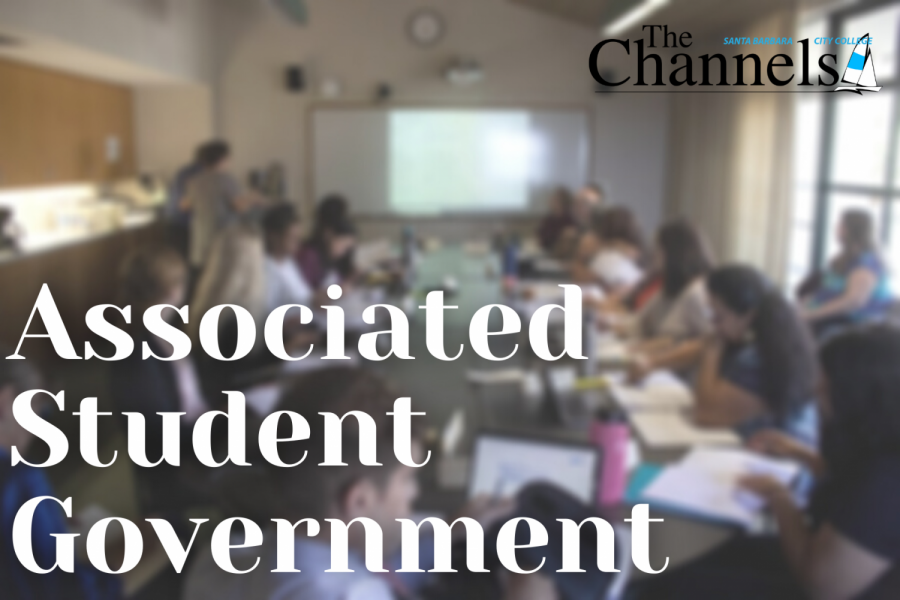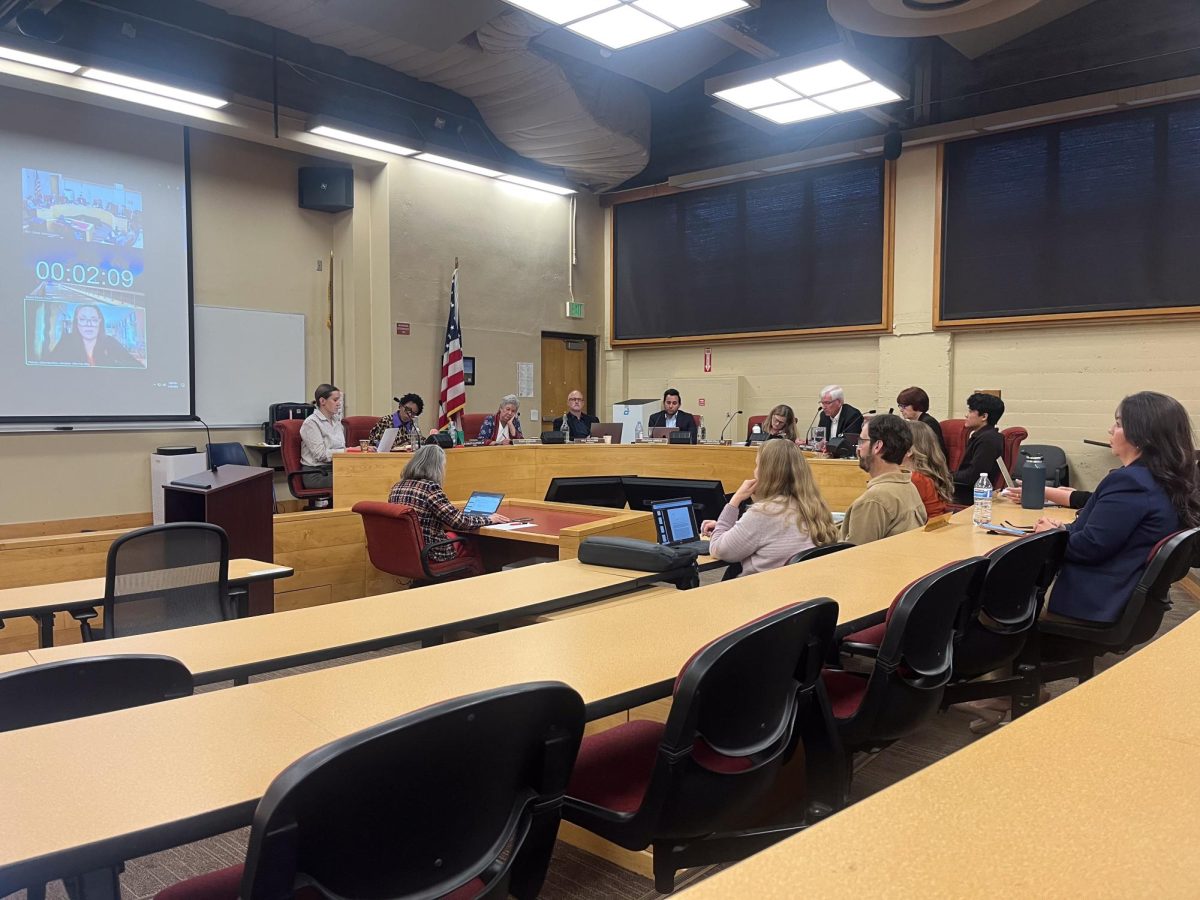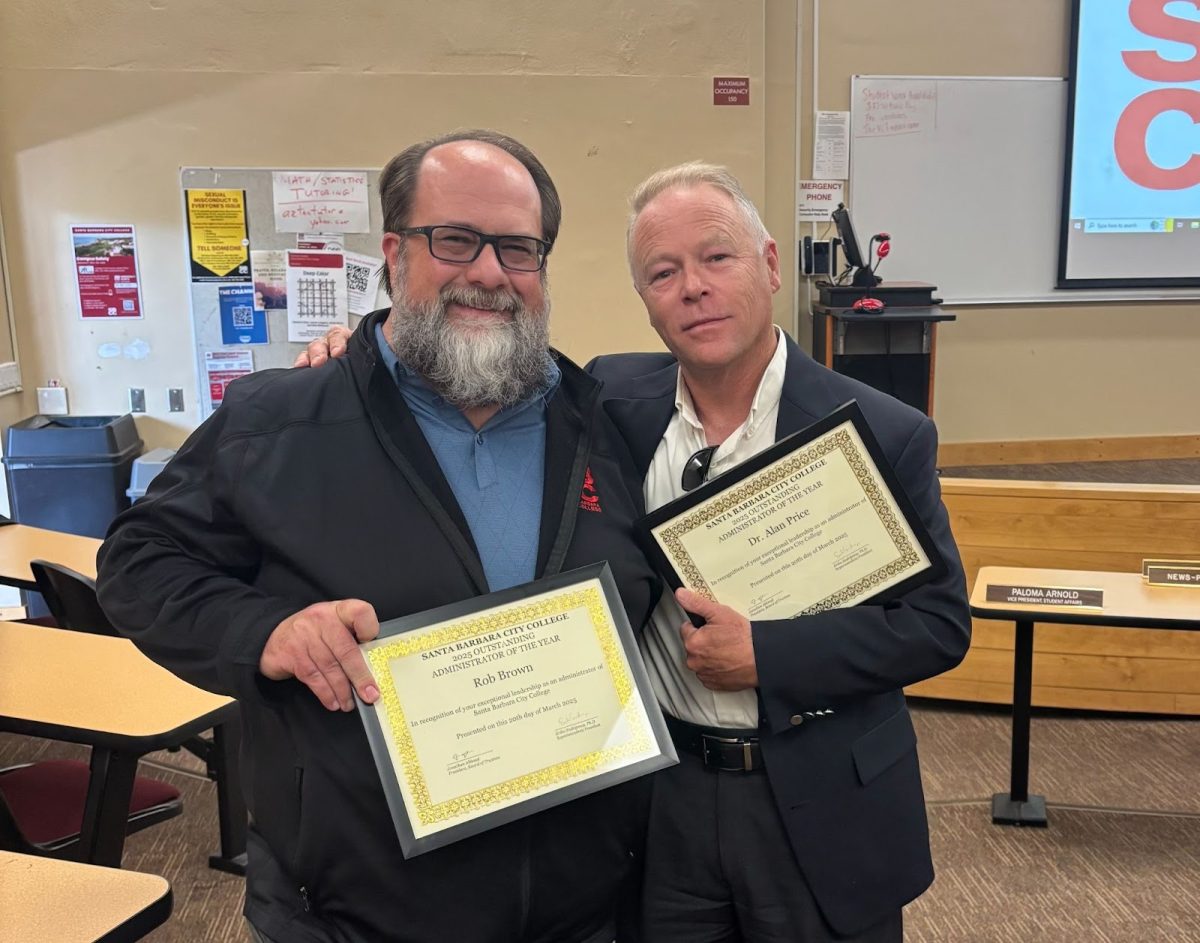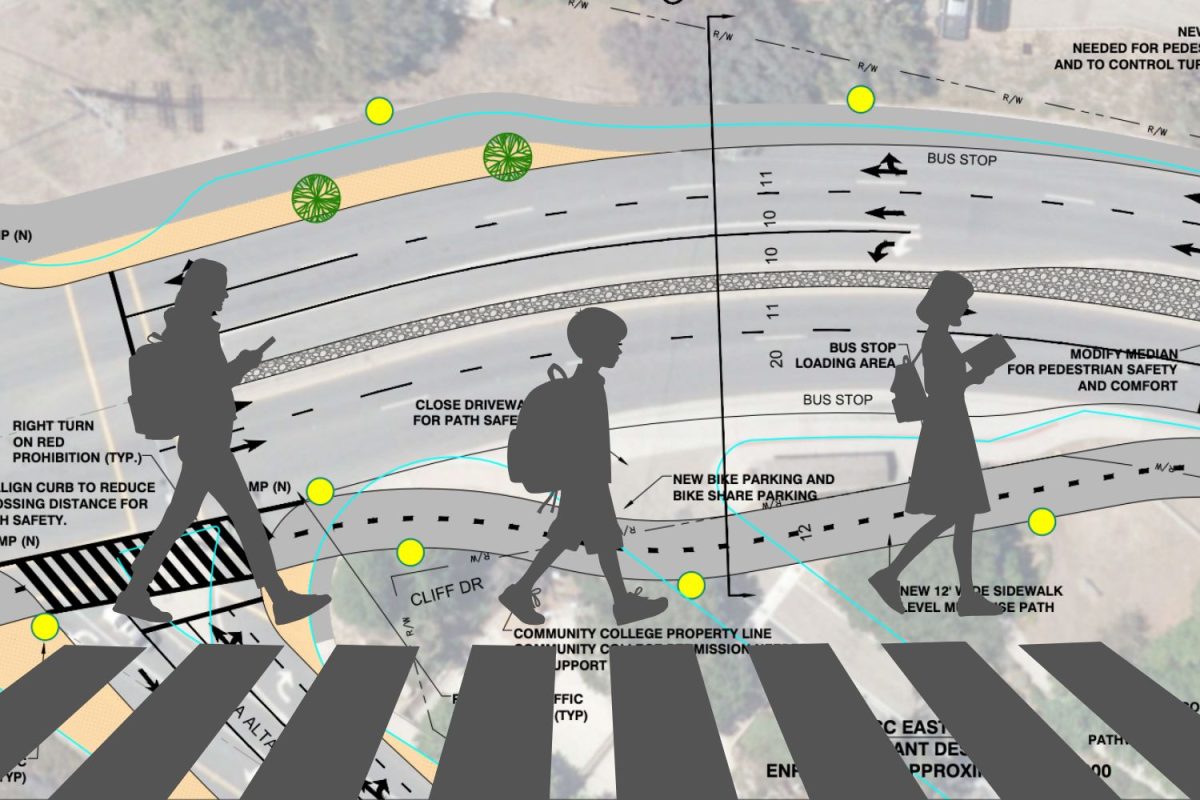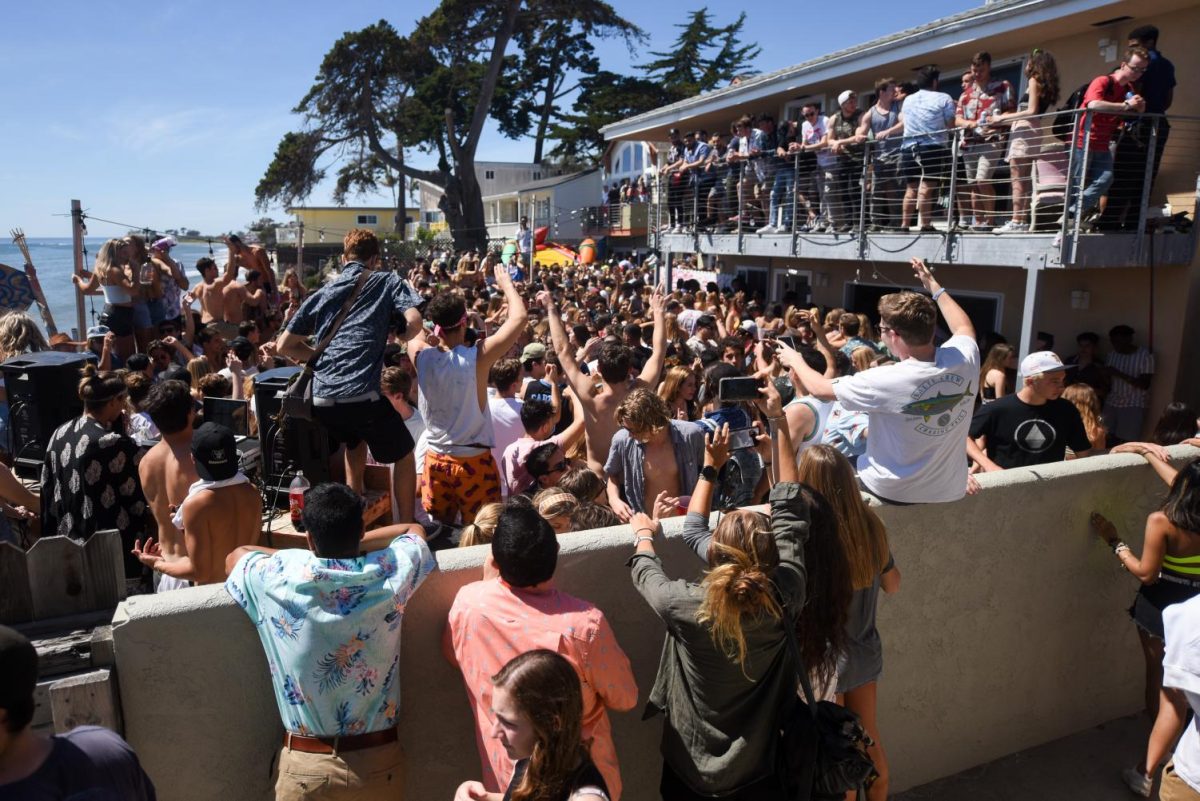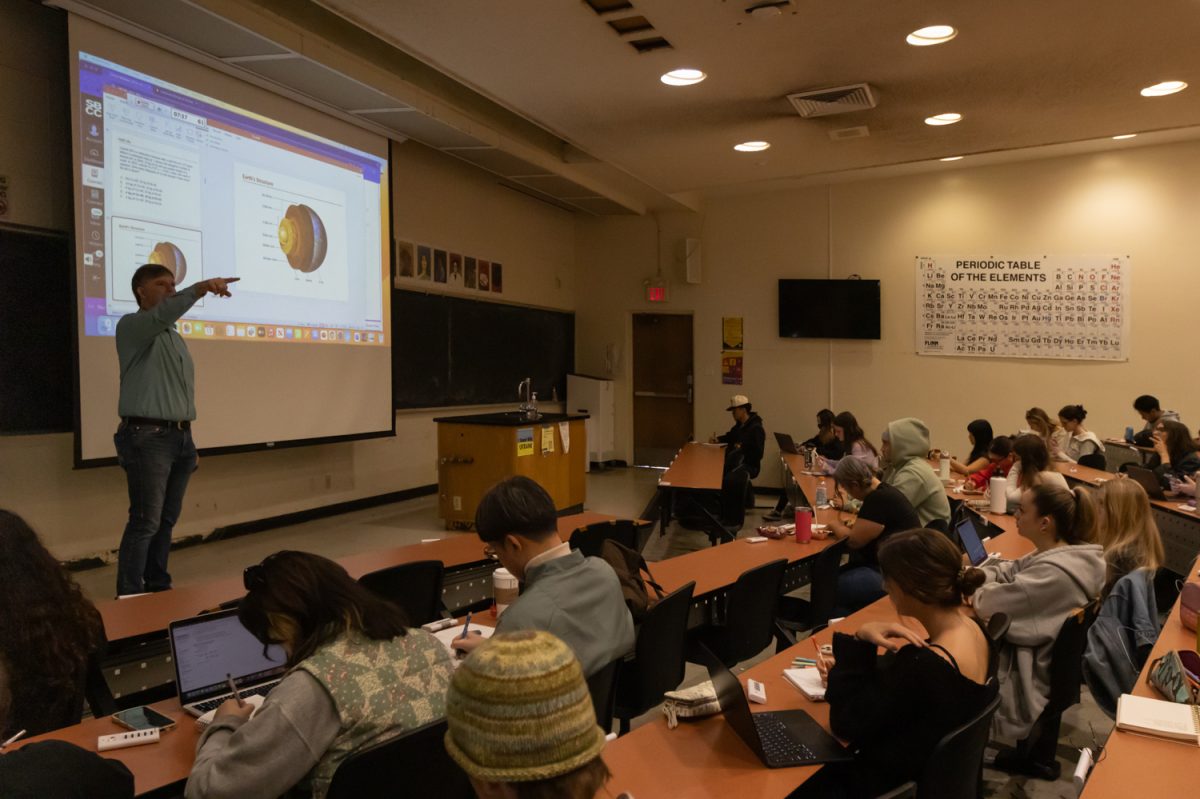In Friday morning’s meeting the Associated Student Government took the temperature of the virtual learning climate for this spring semester and discussed its unique challenges.
The senate decided to create and send out a campus-wide survey to confirm that their own difficulties learning online are not just anecdotal. The survey would gauge student opinions to uncover how distance education has affected them and inform the board of possible solutions.
“Instead of just going on our hunch and our experiences, I think it would be helpful if we backed it up in an unbiased way,” said ASG President Carson Mitchell. “To show people are experiencing the same thing.”
Although the senators left drafting the survey to a meeting scheduled for March 18, they brought to the table critical issues they’ve witnessed.
Commissioner of Events Anastasia Fenkner expressed concern about the seeming lack of synchronous classes at City College compared to four years universities.
“Is there a certain reason that professors at a City College aren’t doing zoom lectures?” she said.
Professor and ASG Student Program Advisor Dr. Melissa Menendez weighed in on this. Because of equity concerns that not all students can attend class virtually, she said this semester has seen a drop in synchronous classes.
“There are certain folks on campus who are telling faculty that they perhaps shouldn’t have synchronous Zoom sessions,” Menendez said.
Her recommendation to Fenkner was to take this issue to the faculty through a public comment at the next Academic Senate meeting. If not, the disconnection could last through the fall semester, perpetuating the problems.
“That will get to faculty that they need to be more aware that students want these lectures,” she said.
Student Trustee Lilli McKinney made it clear, the difficulties she’s experienced learning online have not arisen from lack of effort. Instructors don’t understand the needs of students, she said, because of the nature of the virtual environment.
“I’m a good student, [but] I’m actually not passing a class because the professor is not doing the bare minimum for us,” she said.
With the information from the survey, the ASG can then take steps to find solutions for the obstacles students face.
“Obviously there’s no guarantee we are going to solve such a complex issue like this first try,” Mitchell said. “But we can definitely get gears moving.”
ASG Student Program Advisor Dr. Christopher Johnson exhorted the board to research the policies and attend committee meetings in order to take informed action. He’s heard from some students that enjoy online learning, he said, but it depends on the individual and the professor.
This survey can put ASG on a personal level with the students, McKinney said. Since it is the student senate, they would better understand and relate to student grievances than other campus organizations.
“We just want to help people and we are the students too.”


